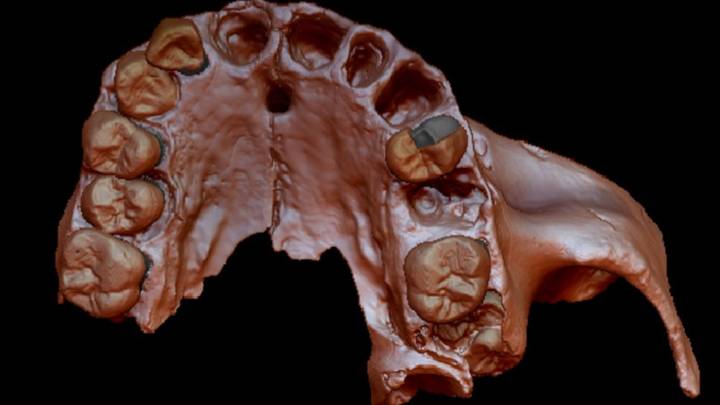Scientists Find World’s Oldest DNA In Tooth Of 800,000-Year-Old Cannibal
Scientists say they have discovered the world’s oldest DNA, having found it in the tooth of an 800,000-year-old cannibal.
The DNA was unearthed by a team from the University of Copenhagen, Denmark, in collaboration with colleagues from the CENIEH (National Research Centre on Human Evolution) in Burgos, Spain, and other institutions – who said the genetic information dates back much further in time than initially believed.
The findings were published in the journal on 1 April, where researchers detailed their use of paleoproteomics, a method that involves the study of ancient proteins.
The tooth was originally found in northern Spain back in 1994, when archaeologists found fossilised remains of humans. According to LiveScience, the bones were cut and fractured, and appeared to have been cannibalised.

But now scientists have been able to look into ancient proteins – a way of opening a window to our genetic past in a way that DNA analysis cannot, especially as proteins can survive in fossils for millions of years.
Frido Welker – Postdoctoral Research Fellow at the Globe Institute, University of Copenhagen, and first author on the paper – said: “Ancient protein analysis provides evidence for a close relationship between , us (), Neanderthals, and Denisovans.
“Our results support the idea that was a sister group to the group containing Homo sapiens, Neanderthals, and Denisovans.”
In the paper, researchers sequenced the ancient proteins in the enamel of an 800,000-year-old tooth, using the proteins to work out the portion of genetic code that had created them.

Study co-author José María Bermúdez de Castro – who is also scientific co-director of the excavations in Atapuerca – said: “I am happy that the protein study provides evidence that the species may be closely related to the last common ancestor of , Neanderthals, and Denisovans.”
Bermúdez de Castro added: “The features shared by with these hominins clearly appeared much earlier than previously thought.”
The team said the study’s use of the new molecular method of paleoproteomics marks a significant means of reconstructing human evolution from further back than ever before.
Fellow researcher Enrico Cappellini also said: “Much of what we know so far is based either on the results of ancient DNA analysis, or on observations of the shape and the physical structure of fossils.
“Because of the chemical degradation of DNA over time, the oldest human DNA retrieved so far is dated at no more than approximately 400,000 years.
“Now, the analysis of ancient proteins with mass spectrometry, an approach commonly known as palaeoproteomics, allow us to overcome these limits.”



